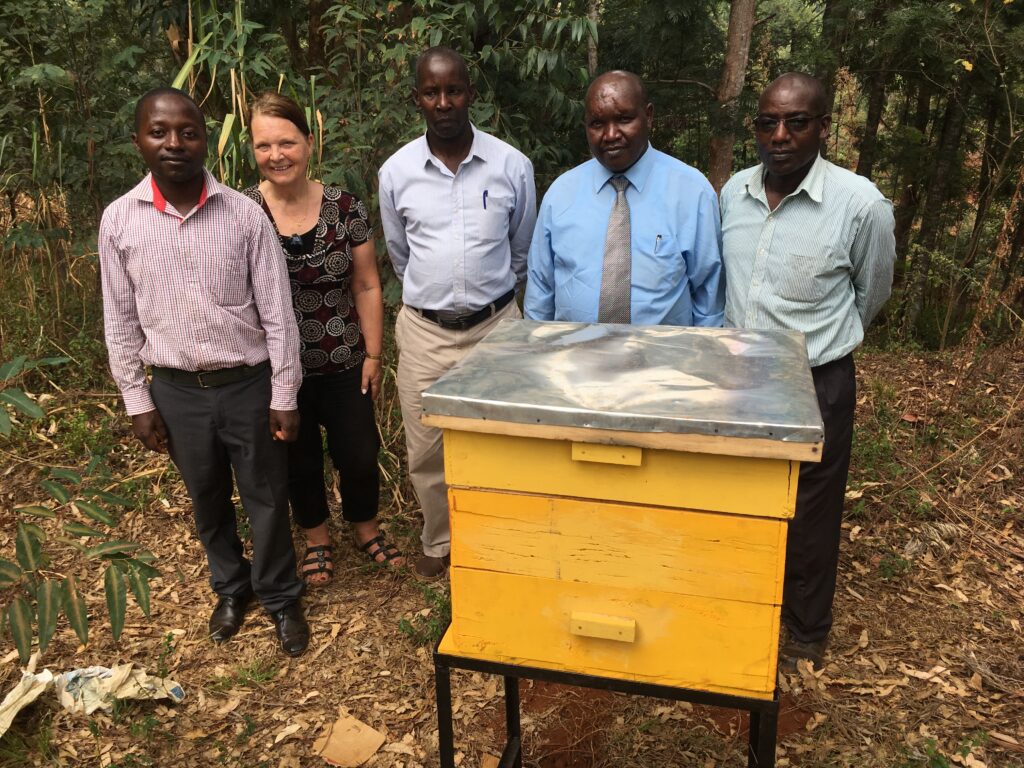
One third of all the food humans eat is pollinated by bees. Yet, bee populations are in crisis around the world. Implicated in the causes are pesticides, climate change, mono-agriculture and more. In Africa, with the Sahara desert rapidly moving south, the problem is becoming critical.
In Kenya, ODFL is placing bee hives in local communities, in schools, in agricultural cooperatives, and more. The bees not only boost crop production, they create honey which can be resold. They are being used to pollinate macadamia nut trees, avocado trees, mango trees, coffee bushes, local subsistence crops, and more.
They are also help boost crop yields at schools which help feed the school populations. Kenyan high school students must pass a national exam demonstrating competence in basic agricultural practices. Bee cultivation and its outcomes is a qualifying demonstration of competence. The hives cost $150 apiece. To learn more, go here.







